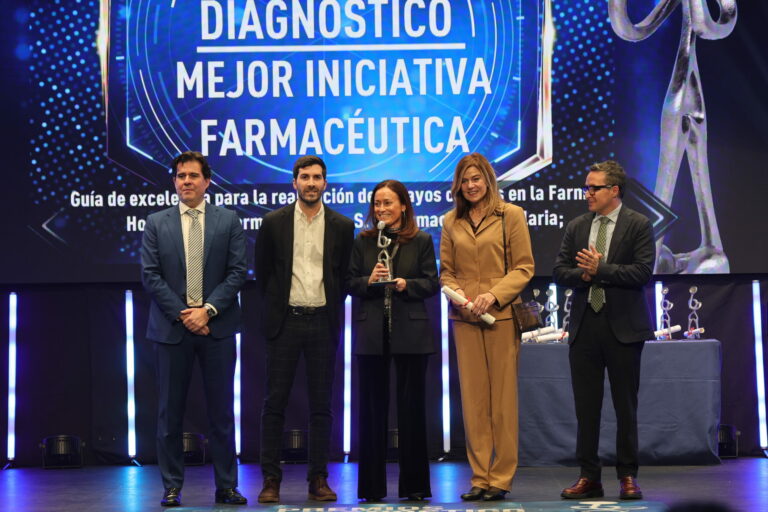“Spain has a great opportunity in the biopharmaceutical sector, but it must review its policies to maintain and increase its potential and attract investment in R&D and in industrial and digital assets.”

The president of Farmaindustria, Fina Lladós, calls for a regulatory framework that improves the country’s competitiveness in order to turn the current situation of global uncertainty into an opportunity.
She points out that more than €3 billion invested annually in Spain by pharmaceutical companies is at stake
Lladós participates in BioSpain 2025, alongside the Secretary of State for Health, Javier Padilla, and the director of the Carlos III Health Institute, Marina Pollán

Marina Pollán (Carlos III), Javier Padilla (Ministry of Health), Fina Lladós (Farmaindustria) and Ion Arocena (AseBio).
farmaindustria.es
With the first year of the 2024-2028 Pharmaceutical Industry Strategy about to come to an end, the president of Farmaindustria and managing director of Amgen in Spain, Fina Lladós Canela, analysed on Wednesday what has been the first sectoral strategy in our country, which she described as a ‘milestone’ and added, ‘it came at a very opportune moment’.
She did so within the framework of BioSpain 2025, which is currently being held in Barcelona, sharing a discussion with the Secretary of State for Health, Javier Padilla, the director of the Carlos III Health Institute, Marina Pollán, and the managing director of the Spanish Association of Bio-Companies (AseBio), Ion Arocena, who acted as moderator.
As Lladós pointed out, the Strategy focuses on ‘three fundamental points for our sector: the promotion of biomedical R&D, a commitment to manufacturing to ensure strategic autonomy, and improved access to new medicines for patients.’
In this regard, he pointed out that Spain is one of the world leaders in clinical trials and is a major producer of medicines in Europe, with more than 180 plants, 111 of which produce medicines for human use. ‘Despite these strengths, the geopolitical context is becoming increasingly complicated, with the trade pressures we are already experiencing from across the Atlantic and the explosion of China and other Asian powers,’ he said.
Spain needs to regain the competitiveness it has lost in Europe compared to the United States and Asia through new pharmaceutical legislation that protects industrial property and promotes innovation, both at European level, with the future Biotechnology Law, and at national level, with the Draft Law on Medicines and Health Products. “We have a great opportunity in the biopharmaceutical sector, but we must review policies to maintain and increase its potential to attract investment in R&D and in industrial and digital assets. Other directly competing countries are doing so, and action is needed. Otherwise, existing opportunities will be lost and the more than €3 billion that pharmaceutical companies invest annually in Spain could even be put at risk,” said the president of Farmaindustria.

The 2024-28 Pharmaceutical Industry Strategy is a roadmap with principles for action that requires regulatory development and a series of other actions and details to be developed together with the parties involved within a joint governance framework. To this end, Lladós has proposed seven key lines of action to boost a strategic sector such as the pharmaceutical industry: developing a predictable and attractive regulatory framework for innovation, both in Spain and in Europe; strengthening the innovation ecosystem; adapting new environmental legislation; reviewing the mandatory contributions of the pharmaceutical industry; continuing to develop the incentives of the Profarma Plan; restoring the attractiveness of R&D deductions in corporate tax; and developing new incentives for the production of strategic and biological medicines.
‘The pharmaceutical industry will continue to advocate that constant, honest and loyal dialogue between the public administration and the private sector is the best way to optimise the health, economic and social impact that our sector can contribute to society,’ he concluded.





